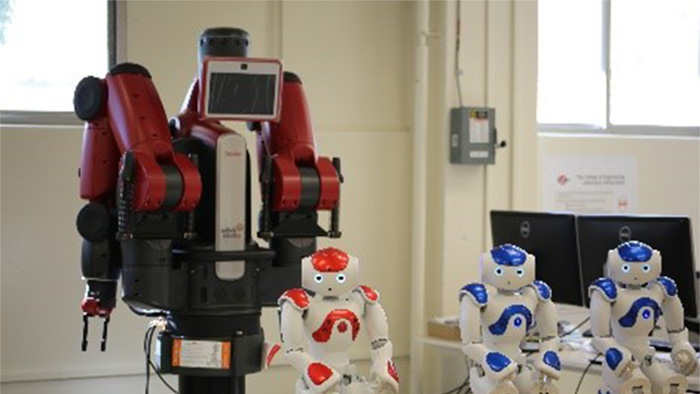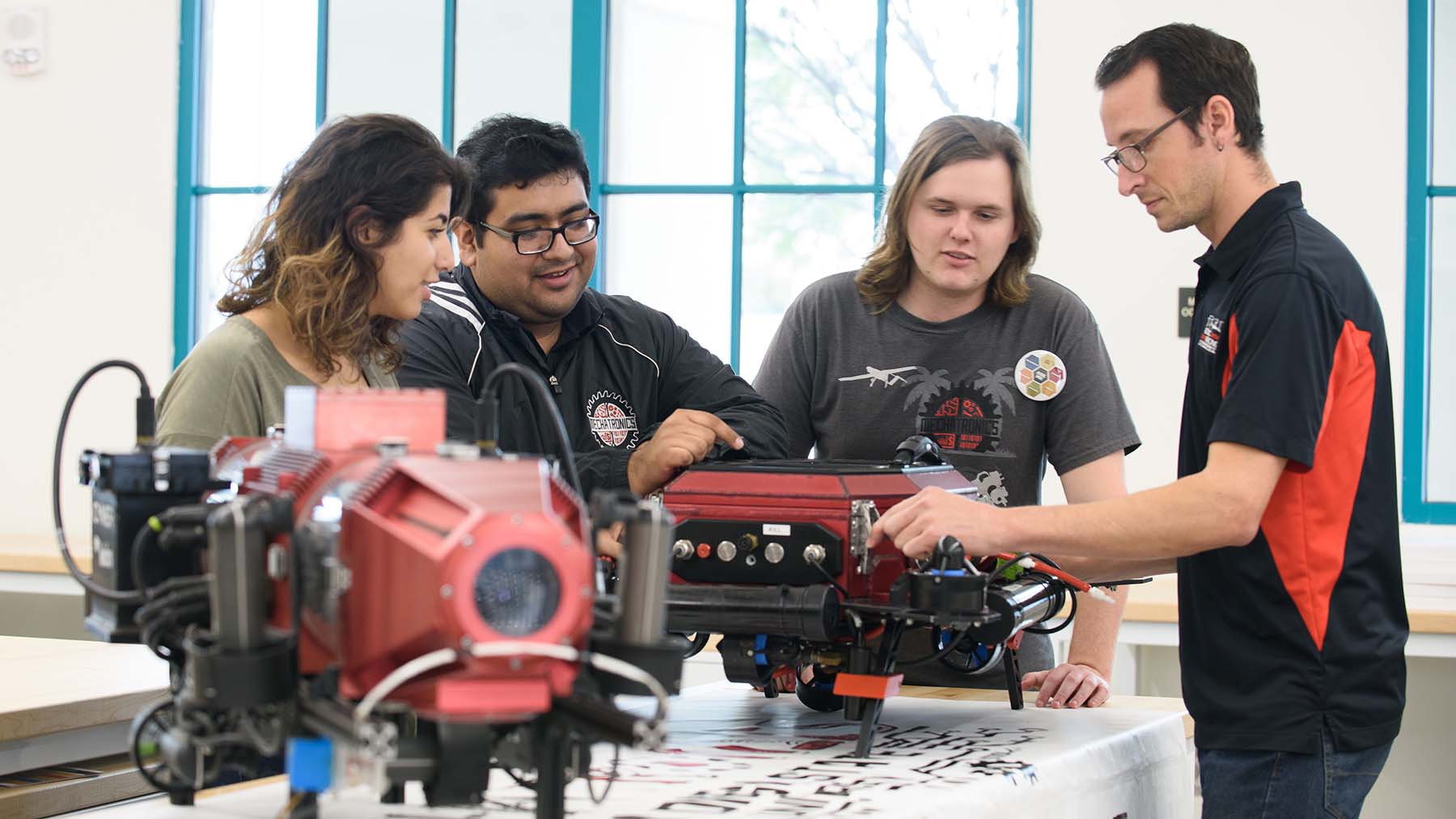Dynamic Systems and Control Laboratory (DSCL)

Dynamic Systems and Control Laboratory (DSCL) focus is on a wide range of research efforts which include, but are not limited to, Nonlinear Modeling, Dynamic Analysis, Optimization (design, operation, and control), and Centralized/Decentralized Control of Multi-Robot Systems, Smart Flow Distribution Network, Magnetic Bearings, and Large-Scale Cyber-Physical Systems along with Machine Leaning studies. Multidisciplinary systems have received much attention with respect to their complex physics leading us to develop efficient numerical and analytical tools along with experimental work to translate the ambiguous behaviors of these systems to understandable mathematical language.
We have many state of the art robots including 1) a 14-DOF Baxter manipulator, 2) an 18-DOF rescue (Dog robot), 3) three 25-DOF NAO humanoid robots, 4) five Unmanned Ground Vehicles (UGVs), 5) a Pendulum Workstation, and 6) a quadcopter (UAV).
We carried out advanced theoretical and experimental nonlinear control and machine learning efforts. Few of those include, but are not limited to, designing a time-delay compensator to stabilize a high-DOF robot in the presence of large actuation delays, and autonomous deep learning-based obstacle avoidance 3D path planning using Baxter funded by an NSF grant. Another unique effort is to implement game theory on a 7-DOF robot by having two players.
In general, our goal is to eventually develop autonomous multi-agent robotic networks through a combination of deep learning and robust nonlinear control schemes.

